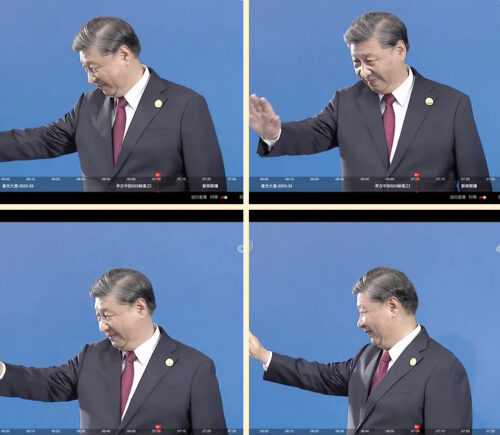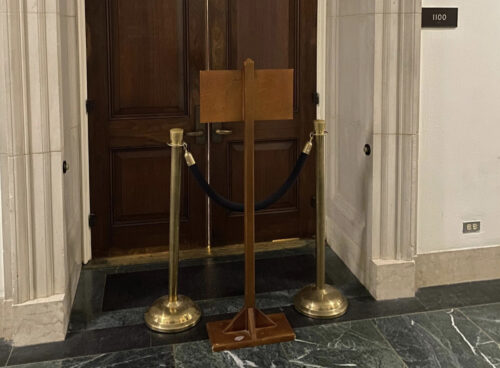Have you tipped a Chinese journalist today? A PR professional explains why companies in China do
Good media coverage is often bought in China. What’s the reason behind this practice, and how is it affecting the media industry?

Today is Journalists’ Day in China, a holiday established by the Chinese State Council in 2000. As a Beijing-based reporter who worked for a foreign media company for four years before turning to the “dark side” of PR, I’ve seen the good and the bad of both Chinese and international media. Now, as an industry outsider, it’s interesting to look at the different ways in which Chinese companies engage with Chinese vs. foreign reporters.
I’m a communication specialist who focuses on helping Chinese companies go abroad, so part of my job entails receiving weird requests from clients. Once, a company without any international exposure came to me and asked my firm to guarantee it a cover story in TIME magazine about its CEO. Another company, which was scandal ridden, realized that Google search results about it were turning up very negative, so it asked us to clear up its reputation…immediately.
Undoubtedly, these requests were due to their experiences dealing with Chinese media. Money can solve many problems. It’s not quite so easy in the West. While delivering the bad news to my potential clients, I also provided a 30-minute training on the differences between Chinese and international media.
It is not fair to generalize and say all media outlets are one thing or another. I want to clarify that the Chinese media I refer to here are mostly those that do business reporting.
Here is a common rule for dealing with Chinese media: Connections through money and relationships, or guanxi (关系
guānxi), can play crucial roles in the outcome of coverage. For example, when companies launch a product campaign, part of their budget will be dedicated to giving “red envelopes” (stuffed with money) for the reporters who show up. On average, it’ll be about 500 yuan ($80) to 1,000 yuan ($150) per person, depending on seniority.
Working for an American newspaper for four years, I was always the one who begged people to talk to us, so you can imagine how shocked I was when — after a month in the PR industry — I received a phone call from a Shanghai industry reporter criticizing me for not preparing red envelopes for a recent event for him. Meanwhile, he promised that if I prepared the envelopes for all of his reporter buddies, he could guarantee coverage from at least 10 outlets.
I was stunned. But after befriending some local reporters, I gradually came to understand the reason for this weird practice. The simple reason is because Chinese reporters’ base salary is very low. An entry-level journalist might make only 5,000 to 8,000 yuan (about $850 to $120) per month. For a reporter with 10 years’ experience, that number might be 15,000 to 20,000 yuan (about $2,500 to $3,100), depending on the publication.
Imagine living in Beijing and Shanghai, where the average price of property is 80,000 to 100,000 yuan ($12,000 to $15,000) per square meter. Working as a reporter for a decade, your annual salary is only enough to buy two-and-a-half square meters. Meanwhile, you need to give your child a decent education. You need to take taxis to interview sites. You need to dress like a professional on a vastly higher pay scale, as you’ll need to meet with senior executives from Chinese or multinational companies. It adds up. If reporters want to survive, they need to find other ways. It’s like bartenders and servers in the U.S. — since your salary is low, you learn to rely on tips to supplement your take-home. PR companies understand this, so we “tip” them.
I am not defending the practice, just trying to provide some background. Reporters are also restricted by the system they work in. Like their peers in the U.S., many Chinese media outlets face fierce competition for advertisement revenue from social media and online platforms. To survive, companies have turned to easy ways to make money: leveraging their content. Editors complain about being responsible for revenue generation, as they are in the content production department, but there’s no way around it. Some media companies even have an internal PR department devoted to helping clients (other companies) build a “good” reputation.
In China, there is little if any firewall between the editorial desk and the business side of the publication. When barriers between sales and editorial become permeable, it erodes many fundamental ethical standards of journalism, including accountability and objectivity. In the short term, the publication can make some quick money, but in the long run, this kind of practice sabotages the reputation of the whole industry. Unfortunately, as in many industries in China, decision-makers are often shortsighted. As a result, regular people are highly skeptical of all media coverage. When people read a newspaper, they often can’t tell if it is real coverage or a puff piece (“soft article,” i.e., 软文 ruǎnwén) bought by a company. Reforming this system means changing the structural base of the media industry in China. This will not be easy.
As for companies, nowadays they can name a price for every task when dealing with the media, including publishing articles, deleting negative coverage, or buying publicity. Through purchasing ads, giving gifts, sponsorships, or even through mergers and acquisitions, companies can establish “good” relationships and build alliances with reporters and their organizations.
That said, throwing money at a PR problem won’t always work. Companies know that competition to get the attention of big and reputable publications is fierce. Fortunately for the public, there are Chinese journalists out there, especially those representing major publications, who care about their reputation and still care deeply about journalistic credibility.
Caixin is one of a few examples of a company doing good journalism in China. Its reporters don’t take red envelopes, and their investigative reporting is considered some of the best in the country. Their reputation is that of idealists, even though the reporters’ salaries are on the low end. I’m sure Caixin is not perfect, but I’ve always felt that it behaves as a media outlet should. Of course, in the U.S., its reporters would simply be practicing basic ethics and doing what’s expected of them. But the reason we heap so much praise on Caixin is because, in China, there are so few like it.





